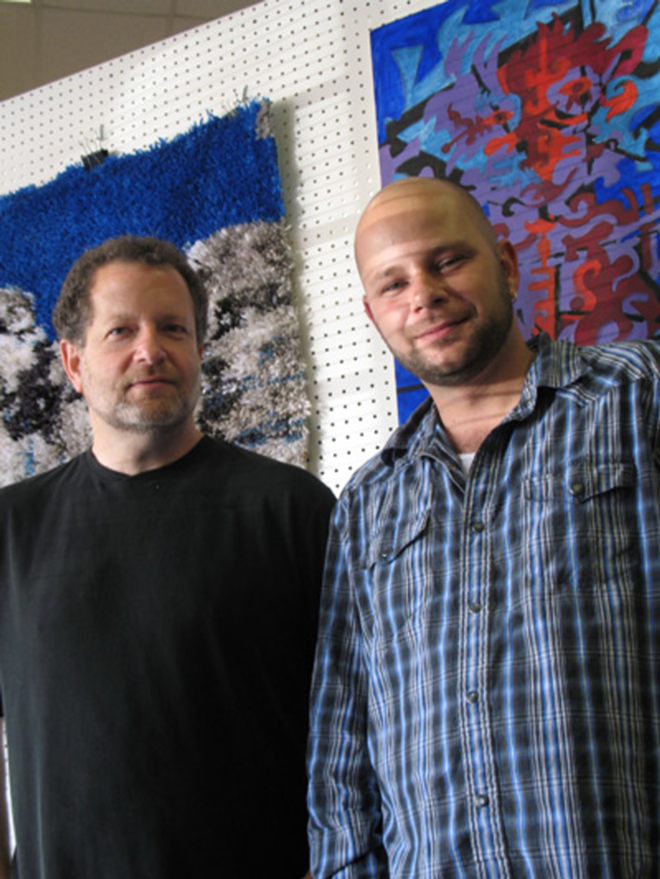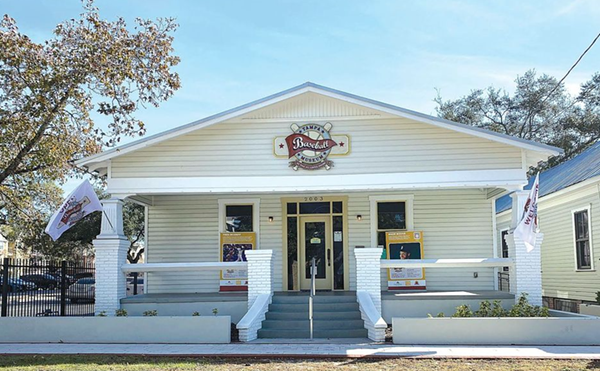It's Thanksgiving Day, and 150 people crowd the offices of Project Return for an impressive lunch of turkey, stuffing and real mashed potatoes.
"We decided that at least for one day a year, these people won't have to eat mashed potatoes out of a box," says Ian Ross as he roves among tables and chairs, shaking hands and doling out smiles. At the other end of Project Return's day center, his father Michael welcomes folks coming in.
The soft-spoken father-and-son duo are staffers at Project Return, a 25-year-old community-based provider of services for adults suffering from mental illnesses. But you wouldn't know by appearance that they're working; they don't wear uniforms, and they don't in any way wish to set themselves apart from the people they're serving.
Ian, the two-year program manager of supportive housing, finds homes for chronically homeless and/or those Tampa residents struggling with mental illness. His father Michael began volunteering as Project Return's music teacher 13 years ago, waiting tables during the day and playing bass in a jazz band at night to raise his son. But his volunteer stint proved short: The organization's founder, Rhoda Zusman, soon hired him to supervise activities for the 100 "members" who step through Project Return's doors Monday through Friday.
"I kind of grew up here," says Ian, stepping outside to escape the hectic dining room. "My dad starting working here when I was about 12. When I was hired, I knew a lot of the residents. ... so the stigmas [of mental illness] didn't really apply."
That's a key statement in Project Return's philosophy: Part of what sets the agency apart is its focus on helping "the whole person" instead of treating symptoms. Project Return offers computer classes, vocational programs and an art room. Two paid teachers work with members in the center's computer room or help them get their GED. Several volunteer instructors come in every week to teach everything from music and art to vocational skills.
"Folks come in, sit down and at the end of the day they feel like they accomplished something instead of constantly talking about their mental illness," Ian says. "We focus on everything besides their illness."
Most of Project Return's members come from nearby assisted-living facilities and boarded houses. Many suffer from schizophrenia or bipolar disorders that can make normally simple interactions like finding employment difficult.
"A lot of them would be at home sitting in the backyard smoking all day," Michael says. "A lot of them would be institutionalized."
The easy-going atmosphere of the center helps residents recover, the Rosses say, especially those that have had bad experiences in more rigidly structured mental health programs. And much of that has to do with Project Return's staff.
"Unlike a lot of the agencies and staff, Project Return doesn't place themselves on a higher level than the clients," says Ian. "We hang out together, use the same bathrooms and eat together. When they come here, they're not patients, they're people."
















